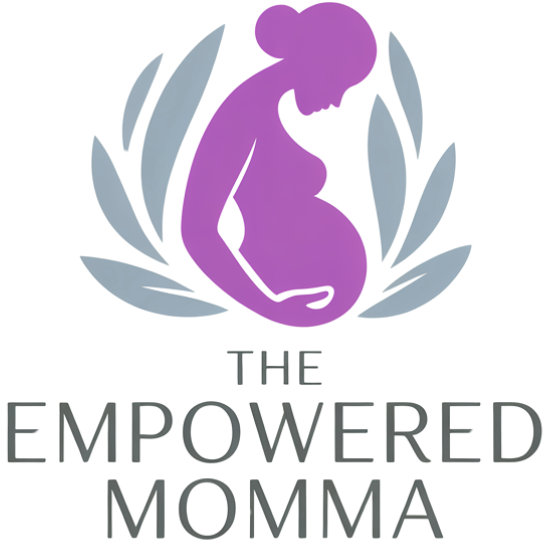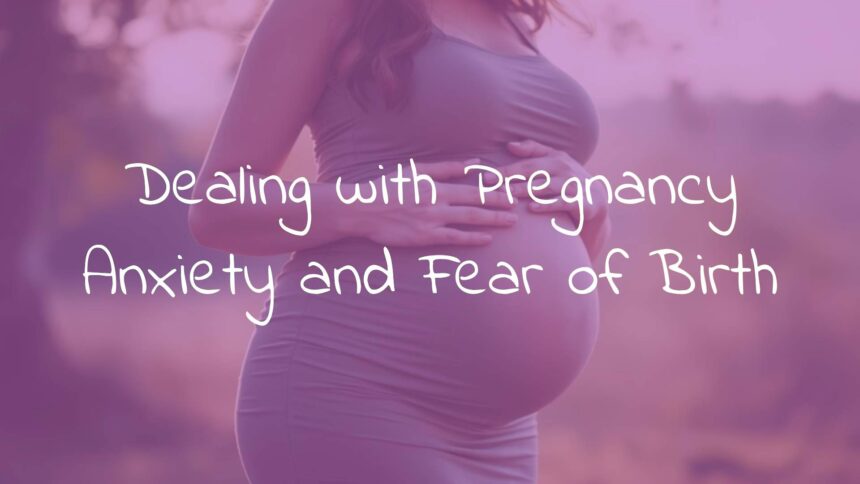If you’re pregnant and feeling worried, nervous, or even scared about what’s coming, you’re not alone. Many people have fears or worries about giving birth. It’s perfectly normal to feel anxious about labor and delivery. The good news is, by learning what these fears are and how to manage them, you can shift from feeling scared to feeling more confident and prepared. This article explains what pregnancy anxiety and fear of birth are, what causes them, how they might affect you, and suggests simple, effective ways to cope.
What Are Pregnancy Anxiety and Fear of Birth?
Pregnancy brings big changes, both physically and emotionally. While many people feel excited and happy, it’s also very common to experience stress or worry. Fears can range from minor, occasional thoughts to intense feelings that make everyday life difficult. Recognizing where you fall on this scale is the first step toward getting support and making things easier for yourself.
How Common Are These Feelings?
It’s very common to worry about childbirth. Most expectant mothers feel at least some concern. Studies show that about 15 to 22 percent of women worldwide report being afraid of childbirth during pregnancy. In the U.S., the number may reach as high as 50 percent at some point in pregnancy. So, if you feel anxious, know you are not alone-this is a shared experience for many.
What’s the Difference Between Normal Worry and a Bigger Problem?
Feeling nervous about childbirth is normal, but sometimes worry can become more serious. Ordinary worries may be about labor pain, the baby’s health, or managing life as a parent. These thoughts come and go. But if your anxiety is always there, changes your sleep or appetite, leads to panic attacks, or stops you from doing things you need to do, it may be clinical anxiety. A strong, ongoing fear about birth is called tokophobia, and it’s important to get help for it.

Why Do People Get Pregnancy Anxiety and Fear of Birth?
There isn’t just one reason. Usually, these feelings come from a mix of emotional, physical, and outside factors all working together.
Frequent Emotional and Physical Triggers
Pregnancy is a time of major change. Not knowing what will happen during childbirth is a big reason many worry. As nurse midwife Yasmeen Bruckner explains, “Giving birth is one of those things that is totally unpredictable, and that unknown can be tough.” Common fears include how painful labor will be, if there might be problems, and the idea of becoming a parent. Tiredness, hormone changes, and feeling physically uncomfortable can also make anxieties worse.
The Effect of Past Experiences and Trauma
What happened to you in the past can impact how you feel now. If someone had a difficult previous birth, they may feel extra worried this time. People who have experienced sexual abuse or assault may find childbirth especially challenging. A history of anxiety, depression, or pregnancy loss can also lead to stronger fears or even tokophobia.
How Media, Stories, and Social Pressure Play a Role
We hear about birth everywhere-online, in TV shows, movies, or from friends and family. These stories often focus on problems or make birth seem scarier than it really is. Well-intentioned friends may share difficult experiences that increase your worries. There’s also a lot of pressure to feel happy all the time in pregnancy, so admitting fear can feel embarrassing or isolating.
What Is Tokophobia?
Tokophobia is a very strong, ongoing fear of pregnancy and giving birth. People with tokophobia may avoid getting pregnant or feel so worried they can’t eat or sleep well while pregnant. They may strongly prefer a cesarean birth (C-section) because of fear. Tokophobia may start early in life or come after a rough birth in the past. It deserves real attention and support from health professionals.

Most Usual Fears About Giving Birth
Certain worries come up again and again for people facing childbirth. Often, these concerns grow from not knowing what to expect or from hearing negative stories. Getting accurate information can really help.
| Common Fear | Key Points | What Helps |
|---|---|---|
| Pain During Labor | Worry about not being able to handle pain | Learn about pain options, take classes, build a support team |
| Emergency C-section | Concern about unplanned surgery | Understand true risks, keep flexible, ask about your hospital’s practices |
| Tearing or Episiotomy | Fear of vaginal injury during birth | Learn about how common minor tears are, discuss perineal massage, ask about prevention |
| Complications for Baby or Self | Worry about health outcomes | Attend checkups, discuss risks with healthcare provider, stay informed |
| Not Reaching the Hospital in Time | Concern about giving birth outside the hospital | Know average labor length, follow provider instructions about when to go |
| Losing Control or Being Embarrassed | Fear of bodily functions or behavior during labor | Remember staff are used to it and prepared, talk about fears with your team |

How Do Pregnancy Anxiety and Fear of Birth Affect the Parent and Baby?
While mild anxiety is to be expected, strong ongoing fear can affect both your body and your mind-and may even influence your birth experience.
Physical Effects
- Stress can cause sleep problems, stomach discomfort, and nightmares.
- If severe, anxiety can make it harder to keep up with medical visits, eat well, or rest enough.
- High stress hormones, like cortisol, during labor can sometimes lead to longer or harder labors.
- Some research connects very high fear to tougher birth outcomes, but this is only one factor among many.
Impact on Mental Health
- Strong anxiety can take away joy from pregnancy.
- You may feel alone or ashamed if you think everyone else is happy except you.
- Untreated anxiety can lead to depression or make postpartum depression and anxiety more likely.
- Tokophobia may cause someone to even avoid talking about their pregnancy or avoid medical care.
Possible Outcomes for Labor and Birth
Some research links intense fear to preterm birth, low birth weight, or needing a C-section. Scientists think this can be because stress hormones affect your body in ways that may influence labor. But the relationship is complicated, and fear is only one of many things affecting how birth goes. What’s clear is that working on your worries can help you toward a more positive experience.
Simple Ways to Cope with Pregnancy Anxiety and Fear of Birth
There are lots of steps you can take to feel better. Education, support, and caring for yourself are important tools.
Learn About Childbirth
- Take a childbirth class. You’ll learn what happens in labor, your pain relief options, and what to expect.
- Read books and trusted websites on pregnancy and birth.
- Ask your healthcare provider questions. The more you know, the less unknown there is to fear.
Build a Support Team
- Have people around you who listen and care-this could be your partner, a close friend, a parent, or a doula.
- Openly talk to your doctor or midwife about your worries. They want to help you, not just deliver your baby.
- Consider adding a doula to your birth team. They can give you steady support and help advocate for what you want.
Practice Relaxation and Mindfulness
- Try deep breathing exercises, meditation, or gentle movement like yoga.
- Music, quiet time, or journaling can help calm your mind.
- Techniques like hypnobirthing teach self-soothing skills for labor. Practicing these before you give birth makes them more effective.

Communicate with Your Healthcare Provider
- Always talk honestly about what worries you-even things that feel silly or embarrassing.
- If you had a tough experience in the past, tell your provider so they can plan with you and help prevent repeats.
Be Careful with Online Information
- Stick to information from trusted sources-your doctor, major medical organizations, or well-known books.
- Avoid reading stories or watching videos that make you more afraid.
- If reading online makes you nervous, take a break and do something relaxing instead.
Reach Out for Professional Help If Needed
- If your anxiety is constant, very strong, or keeps you from enjoying life, ask your healthcare provider about counseling or therapy.
- Cognitive-behavioral therapy is very helpful for many people with birth anxiety or tokophobia.
- A therapist or psychiatrist may suggest safe medications if needed.
Where to Find Help and Support
Dealing with pregnancy anxiety is easier with help, and there are plenty of resources to guide and support you.
Support Groups and Counseling
- Joining a support group, in person or online, lets you meet others who feel the same way.
- Look for resources like Anxiety UK, or find local groups through hospitals or community centers.
- If you want one-on-one help, mental health professionals who know about pregnancy can be very helpful. They may use therapies like CBT or EMDR (for trauma-related fears).
- Your healthcare provider can refer you to the right specialist.
Helpful Books and Tools
- Look for popular, evidence-based books such as “What to Expect When You’re Expecting” by Heidi Murkoff.
- Use websites from medical organizations like the American College of Obstetricians and Gynecologists (ACOG).
- Explore online classes and podcasts from trusted educators or labor nurses (for example, Mommy Labor Nurse).
- Choose resources that focus on realistic, positive information rather than scary stories.
Questions People Often Ask About Pregnancy Anxiety
Is It Normal to Be Afraid of Giving Birth?
Yes-almost everyone feels some anxiety about labor and delivery. This is a big change, and it’s normal to feel unsure or nervous.
When Should I Get Professional Help?
If anxiety sticks around all the time, makes it hard for you to do daily activities, affects your sleep or appetite, or becomes overwhelming, you should talk to your doctor or midwife. If you have strong fears about childbirth or are thinking about avoiding it entirely, you may have tokophobia and should get help from a mental health specialist.
Can My Anxiety Affect the Baby?
Everyday worry is unlikely to harm your baby. But strong, long-lasting anxiety can sometimes affect pregnancy or birth outcomes. Some studies suggest possible connections to early birth or lower birth weight, but research is not clear. The most important thing is to actively work on your anxiety-taking care of your mental health is good for both you and your baby.

